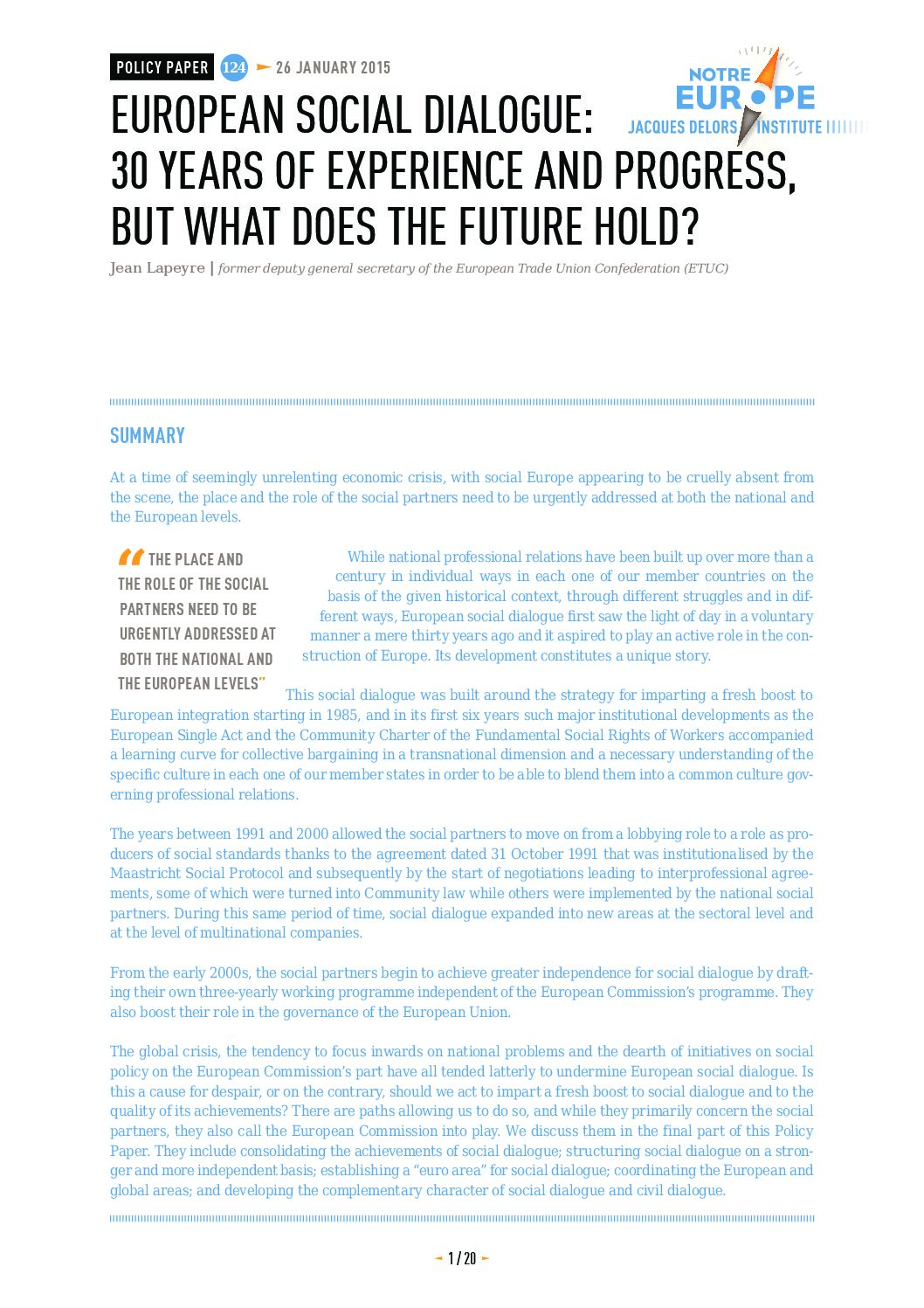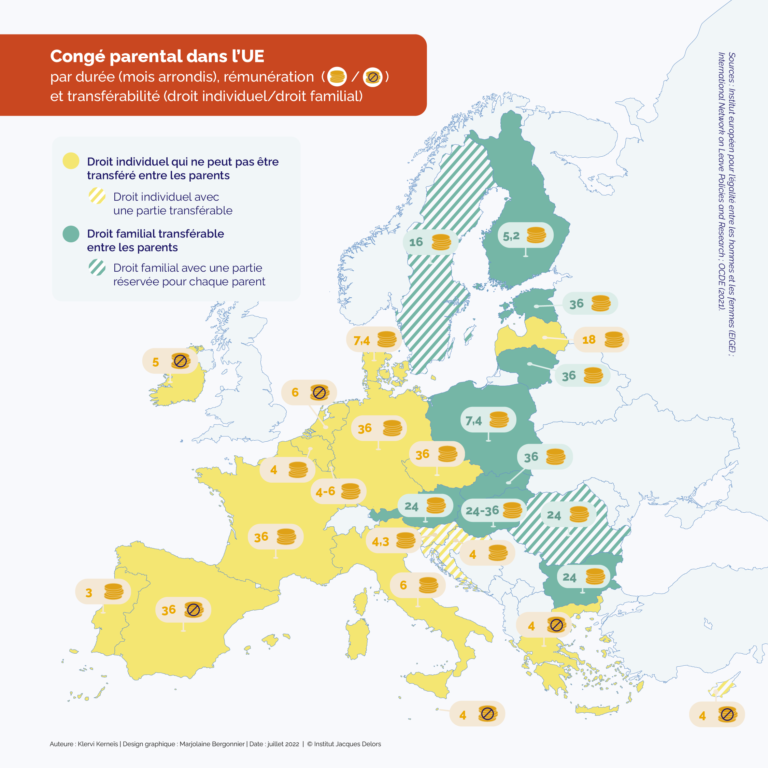Policy Paper 124
European social dialogue: 30 years of experience and progress, what future?
On the occasion of the 30th anniversary of the “Val Duchesse” meetings, the Jacques Delors Institute publishes this policy paper by Jean Lapeyre, in which he traces the birth, evolution and future prospects of the European social dialogue.
At a time of seemingly unrelenting economic crisis, with social Europe appearing to be cruelly absent from the scene, the place and the role of the social partners needs to be urgently addressed at both the national and the European levels.
While national professional relations have been built up over more than a century in individual ways in each one of our member countries on the basis of the given historical context, through different struggles and in different ways, European social dialogue first saw the light of day in a voluntary manner a mere thirty years ago and it aspired to play an active role in the construction of Europe.
On the occasion of the 30th anniversary of the “Val Duchesse” meetings, the Jacques Delors Institute publishes this policy paper by Jean Lapeyre, in which he traces the birth (part 1), evolution (part 2) and future prospects (part 3) of the European Social Dialogue.
The first six years of European social dialogue made it possible to lay the groundwork for a bargaining area and for the social partners to play a role in the governance of the EU. The following fourteen years witnessed the conclusion of the first European interprofessional and sectoral agreements and the diversification of social dialogue at the level of businesses operating in the European area.
The past ten years have proven more difficult and the European Social Dialogue now seems to be treading water, suffering from an EU enlargement that has yet to be fully digested, a crisis that seems to be never-ending, a weakening of collective bargaining and a European Commission weaker and more reluctant to adopt any kind of social initiative, bowing to pressure from the member states.
Is this a cause for despair, or on the contrary, should we act to impart a fresh boost to social dialogue and to the quality of its achievements? There are paths allowing us to do so, and while they primarily concern the social partners, they also call the European Commission into play. They are discussed in the final part of the Policy paper and they include consolidating the achievements of social dialogue; structuring social dialogue on a stronger and more independent basis; establishing a “euro area” for social dialogue; coordinating the European and global areas; and developing the complementary character of social dialogue and civil dialogue.
SUR LE MÊME THÈME
ON THE SAME THEME
PUBLICATIONS
Social Europe: social dialogue at the heart of the debate

Making the most of the European Year of Skills

Parents’ leaves in the EU

MÉDIAS
MEDIAS
En Europe, le grand chamboulement du marché du travail

Enrico Letta: “L’Europa resta una costruzione storta senza il pilastro sociale”

Learning mobility: making it the norm in the EU


















